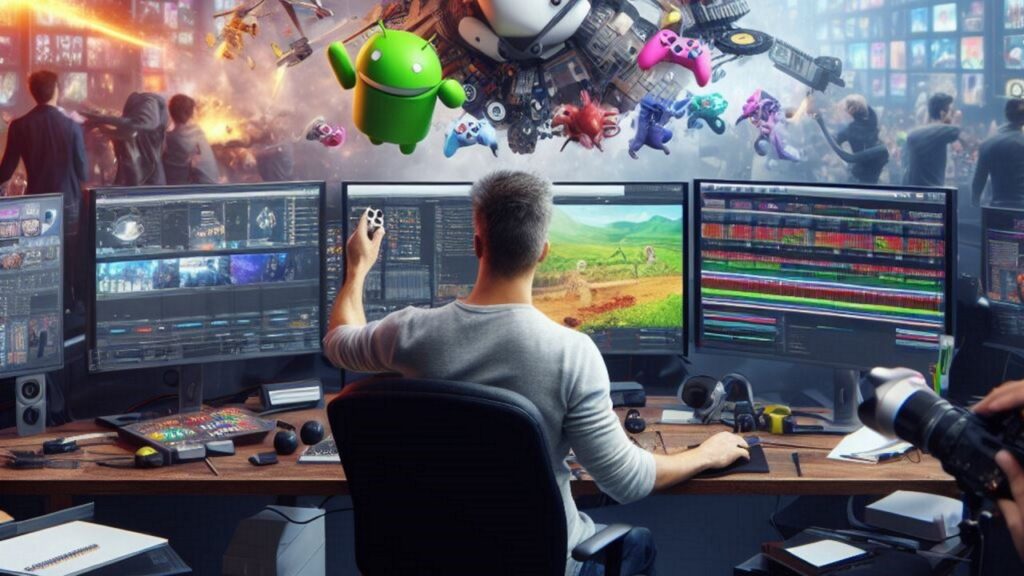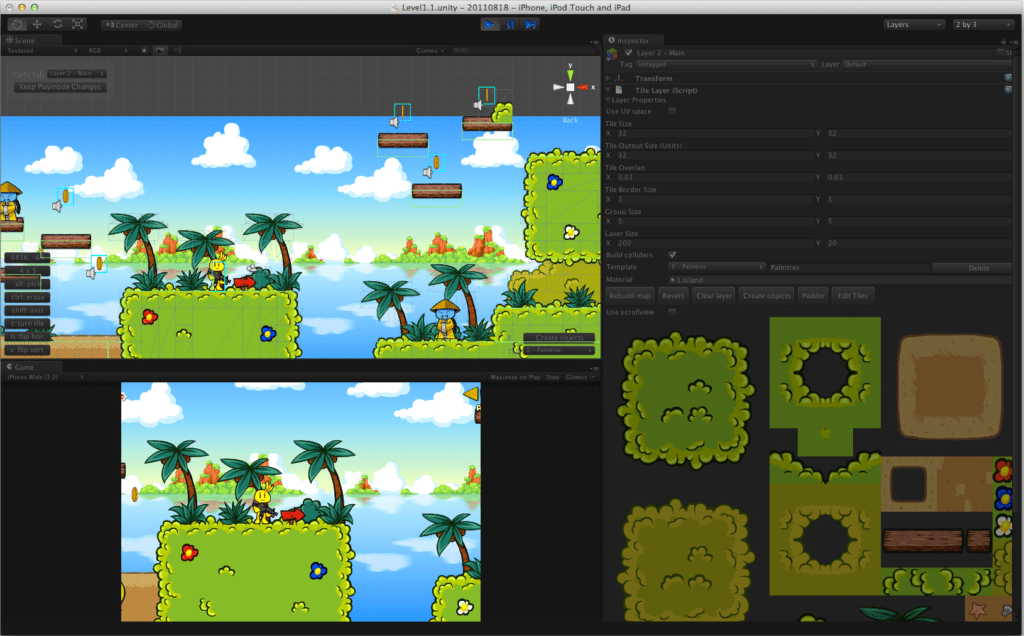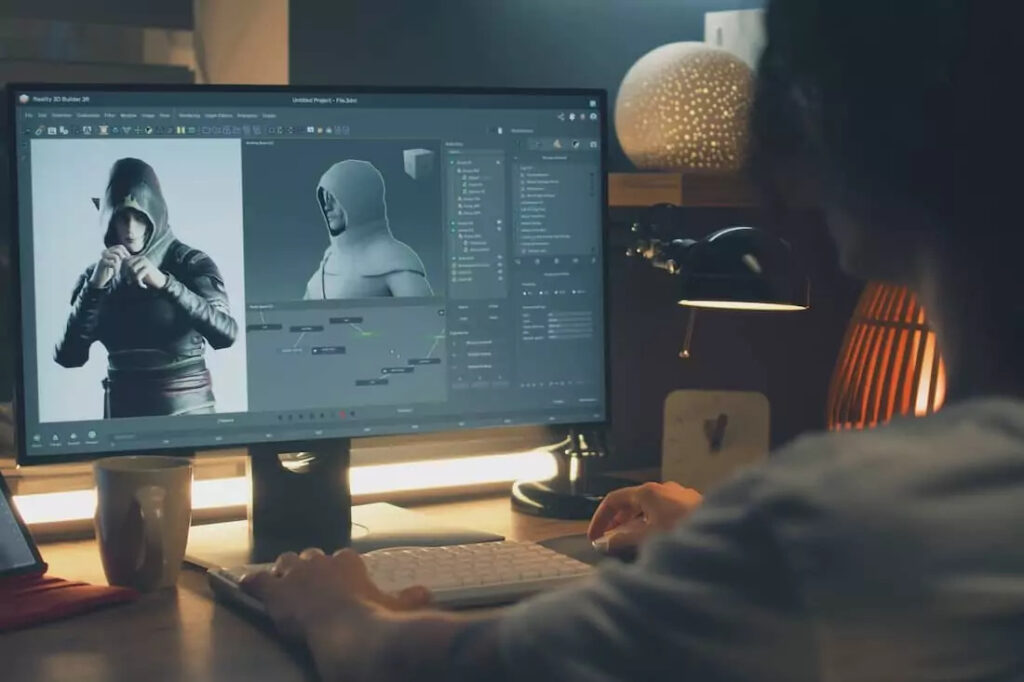If you ever thought about making a game, you know that creating one is more than just assembling code and assets. It’s about crafting an immersive experience that resonates with players; and for aspiring game developers, understanding the journey from concept to launch is crucial.
This article will guide you through the essential steps of making a game, whether for PC, consoles, or mobile platforms. We’ll explore fundamental concepts, choosing the right tools, and the intricacies of development to help you embark on your creative and rewarding game development journey.
Come with Main Leaf today to be up to date with the essentials of game-making!
How to make a game: the fundamentals

Before diving into game creation, it’s essential to grasp the basic building blocks of game development. Understanding key terms and the roles of various team members involved will lay the foundation for your project’s success.
Key terms:
- Game design: The process of creating the rules, structure, and content of a game.
- Game development: The overall process of creating a game, involving programming, art, and sound.
- Game engine: Software that provides the core functionality of a game, like rendering, physics, and scripting.
- Programming: Writing the code that powers the game.
- Art: The visual elements, including characters, environments, and animations.
- Sound: Audio elements such as music, sound effects, and voiceovers.
Each game development role plays a crucial part in the final product, too:
- Game designers are responsible for the game’s concept, mechanics, and player experience.
- Programmers translate the design into code, ensuring the game functions properly.
- Artists bring the visuals to life, while sound designers create immersive audio landscapes.
To make a game and to develop a strong game concept, think about what makes your game unique. Consider your target audience and what they’ll find engaging. Building engaging gameplay involves creating mechanics that challenge and reward players, such as well-balanced difficulty and innovative features. Prototyping early on can help refine these elements and solidify your concept.
How to make a game: choosing a platform and engine
Selecting the right platform and game engine is crucial for the success of your project. That said, each platform has its pros and cons, and the choice will depend on the type of game and audience you aim to reach.

Platforms
- PC games typically allow for higher graphics quality and complex gameplay but may require more resources and time to develop.
- Console games offer the advantage of a dedicated hardware ecosystem but often come with strict development guidelines.
- Mobile games are ideal for casual gaming but require optimization for smaller screens and lower-performance devices.
Popular game engines
- Unity: Known for its versatility, Unity is widely used for both 2D and 3D games. It supports multiple platforms and is beginner-friendly.
- Unreal Engine: Famous for its high-end graphics capabilities, Unreal is ideal for complex, visually stunning games.
- Godot: This open-source engine is great for developers looking for flexibility and community support.
When choosing a platform and engine, consider your team’s expertise and your project goals. For instance, if you’re building a mobile game with simple mechanics, Unity may be the best fit, while a more graphically intensive PC or console game might benefit from Unreal Engine’s advanced capabilities.
Read also: Unity vs Unreal – which engine is better for your game?
The 4 stages of the game development process
The development process typically unfolds in four main stages: pre-production, production, testing, and post-production.

Pre-production
This phase involves planning and setting the foundation for the project. Game designers will map out the game concept, mechanics, and storyline. Prototyping, as mentioned, is essential here – as it allows you to test core ideas before full development begins. Pre-production is also the time to establish timelines, budgets, and team roles.
Production
This is where the bulk of development happens. Programmers write the code, artists create the game’s visuals, and sound designers develop audio assets. Communication is key during production, by the way; teams must work in tandem to ensure that all aspects of the game come together seamlessly.
Testing
Testing is critical to ensure the game functions properly and provides a smooth user experience. This stage involves identifying bugs, fixing them, and refining gameplay elements. Iteration plays a big role in this phase – testing early and often helps catch issues before they become major problems.
Post-production
Even after the game is complete, post-production involves polishing and preparing the game for launch. Marketing strategies are executed, and final adjustments are made based on feedback from testers and early users.
Remember always that effective teamwork is vital throughout the development process. Clear communication between designers, programmers, and artists can prevent costly delays and ensure a more cohesive game.

Essential tools and technologies
Game development relies on a suite of tools and technologies to bring concepts to life.
- 3D modeling and animation software: Tools like Blender and Maya are used to create 3D models and animations for characters, environments, and objects.
- Level editors: Level editors allow designers to build and refine the game’s worlds. Unity and Unreal Engine come with powerful built-in level editors that simplify this process.
- Programming languages: The language you choose depends on the engine and platform. C++ is commonly used in Unreal Engine, while C# is favored by Unity developers. Python is also a versatile choice, particularly for scripting and automation tasks.
- Asset stores and libraries: Game development can be expedited by using pre-made assets from libraries like the Unity Asset Store or Unreal Marketplace. These resources offer everything from sound effects to character models, saving time and allowing developers to focus on custom elements.
Testing and optimization
Given how testing ensures the game delivers the best possible experience to players, this plays a role in every step of the process, even up to a few days before launch. The process typically involves:
- Alpha testing: Internal testing focused on finding major bugs and performance issues.
- Beta testing: A more public phase, where a select group of users try the game and provide feedback.
- User testing: Ensuring that the game is intuitive and enjoyable for players.
Optimization is equally important, especially for games that will be played on multiple platforms. Reducing load times, improving frame rates, and ensuring smooth performance across devices will enhance the player experience.
Publishing and marketing your game
After development is complete, it’s time to publish and market the game. Depending on your resources, you can choose between:
- Self-publishing: Ideal for indie developers with a smaller budget, self-publishing platforms like Steam and Google Play provide wide-reaching distribution.
- Traditional publishing: Larger studios often partner with publishers who provide funding, marketing, and distribution support.
- Indie publishers: Smaller, independent publishers focus on helping indie games reach niche markets.
Of course, marketing is a vital part of a game’s success. Create a compelling game trailer, take captivating screenshots, and build a strong presence on social media. Engage with your audience and showcase your game’s unique features to generate buzz before launch.
Start your development journey with Main Leaf to make a game that stands out!
Established in 2012 and proudly rooted in the heart of Brazil, Main Leaf is a distinguished game development company. With a passion for translating ideas into captivating gaming realities, Main Leaf plays a pivotal role in guiding both novice and seasoned developers through the exciting world of game creation.
At Main Leaf, we’re more than just a game development company; we’re your strategic partner in turning your game vision into a reality. With a proven track record of success and a passion for innovation, we’re dedicated to helping both aspiring and experienced developers create truly exceptional games.

Why choose Main Leaf
- Comprehensive expertise: Our team of skilled professionals offers a wide range of services, from concept development to game design, programming, and art.
- Tailored solutions: We understand that every game is unique. That’s why we work closely with our clients to develop customized solutions that align with their specific goals and vision.
- Proven success: Our portfolio showcases a diverse range of games, from casual mobile titles to complex AAA experiences.
- Commitment to quality: We’re dedicated to delivering the highest quality games, ensuring that every project meets the highest standards of excellence.
So – are you ready to bring your game to life? Whether you’re just starting out or need help taking your existing project to the next level, Main Leaf is here to support you.
Contact us today to discuss your game idea and learn how we can help you achieve your goals. Let’s create something extraordinary together!

